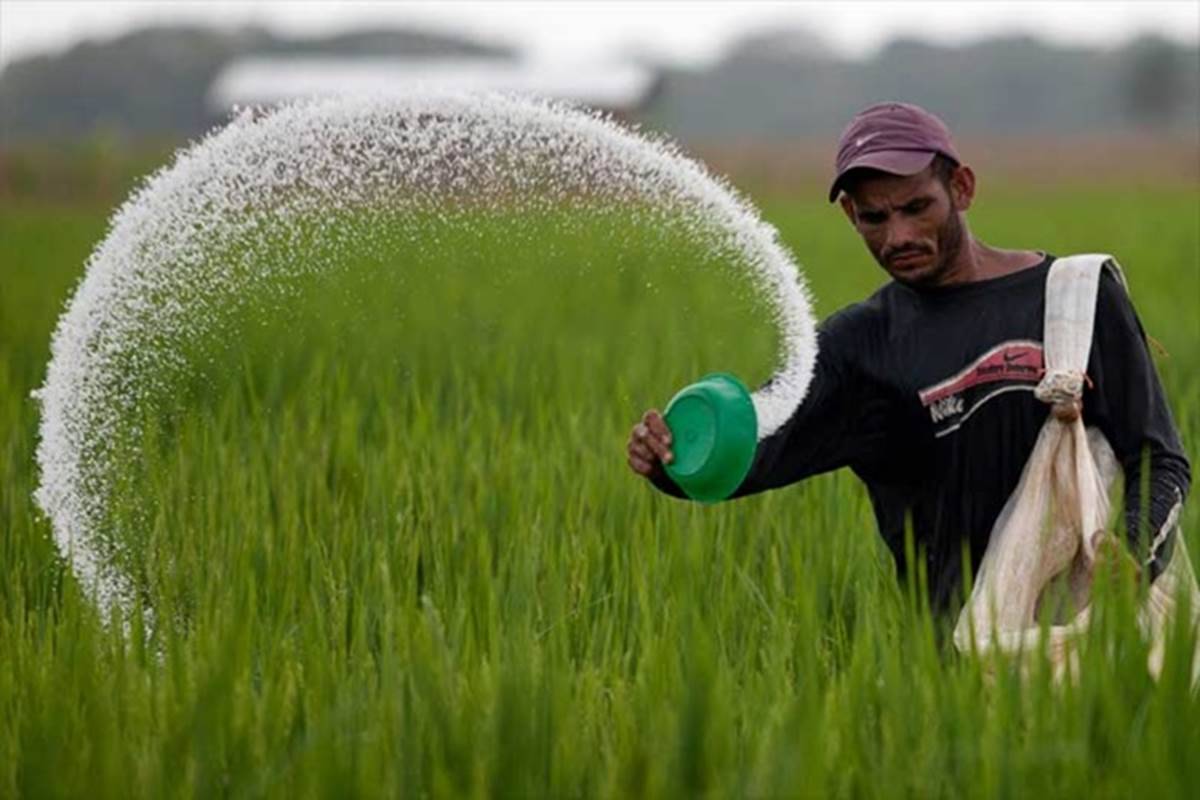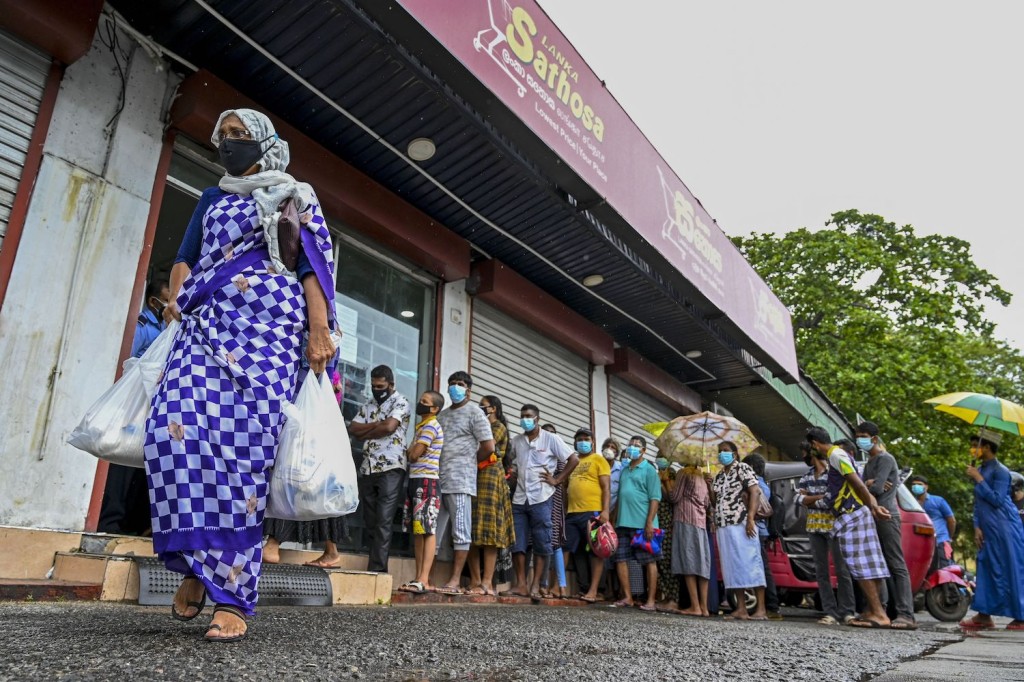FERTILIZER ISSUE AND IMMINENT FOOD SHORTAGE

Mixed up priorities and lopsided policies
Sri Lanka is predominantly an agricultural country where a large population still depends on agricultural activities at large. In some districts especially Anuradhapura, Polonnaruwa, Jaffna, Mullaitivu, Ampara and Nuwara Eliya have a farmer community who make their living solely on agro produces. This will be explained vividly with this anecdote. When Mahinda Rajapakse International Cricket stadium, Suriyawewa was being constructed, one top Sri Lanka Cricket official on his way back from an inspection tour, stopped by to quench his thirst from a King Coconut at a roadside vendor. Noticing a couple of young men on a tractor sipping King Coconut, he approached them and quipped in native language ‘Hi chaps, we are constructing a new stadium for you all in Hambantota district’, expecting a positive response from them. In contrary, two young men wasted no time in retorting back by saying ‘No sir, we fertilizerdon’t want a stadium. If water is provided on time, we will be more than happy’. That is the mindset of people who live in rural Sri Lanka. Instead, Sri Lanka Cricket constructed a state –of-the-art stadium. Sri Lankan politicians used to give a plethora of promises and one such pledge is free availability of fertilizer which is prominently featured in the election manifestos of all parties before an election. Once in power, the politicians go back on their promises. It is similar to ‘a back to square one’ situation or ‘who is fooling who?’ scenario. Now, the situation has become very serious.
Agitated Farmers and their bone of contention
These days, it is a common sight that farmers stage protests all over the country demanding fertilizer for their crop. The agitated farmers even went to the extent of burning effigies of Minster of Agriculture, Mahindananda Aluthgamage and President Gotabaya Rajapakse in those serial protests. What made them turn violent in such a manner? The reason is anyone’s guess. The present government in a surprise move decided to ban import of chemical fertilizers with no prior notice at the beginning of this year. The government championed this cause on the premise that it wanted to transform Sri Lanka into a country which uses only organic fertilizer. Chemical fertilizer is used mainly on Tea and Rice crops to ensure bumper harvests which is the life line of the nation. The people are still confused as to this sudden decision by the government so are the companies which import chemical fertilizer varieties as their main line of business. Some independent analysts are of the opinion that creating an organic culture in Sri Lanka is a welcome initiative but the time factor provokes concerns. Many agro-based entrepreneurs feel that the ban should have been implemented in stages with prior notice. And this ban came into effect when alternative organic fertilizer was not available in the market in such quantities. But, the government stuck to their guns. In spite of the growing unrest, the government refused to reverse this policy decision that banned import of chemical fertilizers. As a result, the innocent farmers are given to face untold miseries with an imminent threat of a forthcoming food shortage.

Truth behind the ban of chemical fertilizer imports
Today, Sri Lanka is in bad shape economically due to the dearth of US dollars. The sudden prohibition came at a time of this US dollar crisis with a view to saving US$ 400 Million which is the cost on fertilizer imports for a harvesting season. This cannot be presumed as false information. Sri Lankan government has sanctioned import embargoes on a range of goods such as vehicles, luxury electronic/electrical items, and some food commodities in recent time. The government was often accused of excessive currency printing too. But, fertilizer is essential for farming. So, Estate managements and small Tea holders are crying foul at the government over this issue. The government has now agreed to relax the ban only for Tea which is also subject to confirmation. Therefore, the critics articulate that the government has not done it with the noble objective of making Sri Lanka a country of an organic culture but to salvage the government from dilution for want of US dollars. The government is obviously cash trapped and in a serious crisis as never before in the contemporary history. Meanwhile, Sri Lanka intended to import organic fertilizer from China, may be on a credit line. The samples failed the clinical tests three times, raising concerns among agro scientists. But, China is hell bent on dumping so-called organic fertilizer in Sri Lanka by hook or crook. According to the results of clinical tests, the fertilizer samples contain some bacterial organisms which are harmful to the Sri Lankan soil. The ship carrying the shipment of Chinese organic fertilizer was denied entry into the port for unloading until the tests on this fertilizer stock are found positive for use in Sri Lanka. Coming weeks will be very crucial for Sri Lanka. It is a million dollar question to see whether this ship would dock at the port eventually.
Positive side of the story
Some quarters of Sri Lankans see this as a positive trend. In fact, Sri Lanka was listed on the top for consuming poisonous food in the world. One reason is for this is widespread use of chemical fertilizers and pesticides. Some concerned professionals had been exerting pressure on successive governments to completely ban chemical fertilizers and pesticides. However, the farmers look at the problem with mixed feelings, apparently being concerned about less harvest. Every Sri Lankan agrees on the fact that chemical fertilizer should be proscribed. Meantime, they argue that this is not the right time for such a ban as Sri Lanka has suffered a great deal at the hands of Covid-19 pandemic to the point of imminent economic collapse. Some critics point out that the government is under severe pressure from China to tow this line of policy which would help China to cash in on Sri Lanka’s misery. The positive side of the story is that many companies start venturing out to mass scale producing of organic fertilizers. Even a couple of agro companies contemplate using Nano technology to manufacture organic fertilizers, boosters and eco-pesticides locally. This will help the farmers to reap high volume harvests with the use of Nano organic fertilizer in small quantities. The time will decide whether this ban is a good one or bad one in the future. The fervent hope of the average Sri Lankans is to go into the future with no hardships and shortages. It is a wait and see game for everyone in Sri Lanka now.







